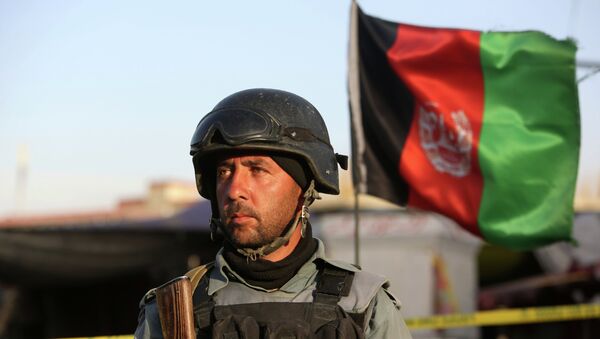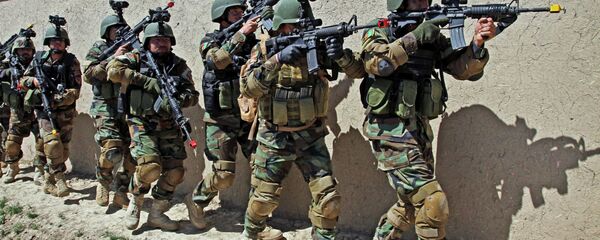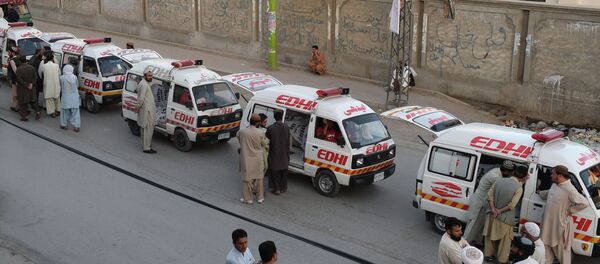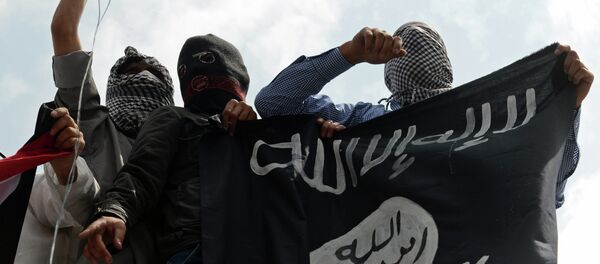The fighting broke out near the town of Angoor Adda on Wednesday. While the incident left one Afghan police officer dead and two Pakistani troops injured, both sides give conflicting accounts as to what set off the chain of events.
According to Sediq Sediqqi, spokesman for the Afghan Ministry of Interior, the hostilities began when Pakistani forces tried to erect an illegal structure along the border.
"Afghan border police intervened and exchanged fire. As a result, one Afghan border policeman was killed," Seddiqi said, according to Reuters.
A statement released by the Pakistani military, however, tells a different account.
"An RPG-7 rocket and few rounds of small arms were fired on Angoor Adda gate from the Afghan side, due to which two Pakistani security personnel were injured," the statement reads.
According to local residents speaking to Reuters, the border crossing has been sealed for the time being, and both Afghan and Pakistani forces remain alert, bracing for the potential of additional conflicts.
Whatever the cause, the timing of the incident couldn’t be worse. In recent months, Afghanistan and Pakistan, longtime rivals, have attempted to mend old wounds. Since taking office, Afghan President Ashraf Ghani has pushed for increased cooperation in matters of military and intelligence, and Pakistani Prime Minister Nawaz Sharif has echoed these sentiments.
"I assure you, Mr. President, that the enemies of Afghanistan cannot be friends of Pakistan," Sharif said during a visit to Kabul last May. "Any effort by any militant or group to destabilize Afghanistan will be dealt with severely and such elements will be outlawed and hunted down."
Chiefly, both countries are concerned with Taliban insurgents who have managed to maintain control over rural areas, despite the best efforts of security forces. Both leaders seem to see cooperation as the only way to ensure stability.
Further complicating matters is the recent emergence of the self-proclaimed Islamic State terrorist group in the region. Earlier this month, militants fighting under the banner of IS gained control of large swaths of Nangarhar, a province along the border. These districts were seized from the Taliban.
"They [IS loyalists] came in on many white pickup trucks mounted with big machine guns and fought the Taliban," Haji Abdul Jan, a tribal leader from the region, told Reuters. "The Taliban could not resist and fled."
With two insurgent groups fighting along the border, cooperation between Kabul and Islamabad could be more vital than ever.





